
 Flash News
Flash News
Accident in Italy, 46-year-old Albanian dies (NAME)
The American obsessed with Albania, a country he would write an anthem for
Election farce/ Berisha publishes new facts and evidence for the manipulation of diaspora votes
Drug gangs in Tirana cracked down, 24 arrested, 8 wanted (NAMES)
Veliaj in prison, hackers attack Tirana Municipality website, obtain sensitive data
"I paid 300 euros to come to Albania"/ Palestinian immigrant recounts smuggling journey from Gaza
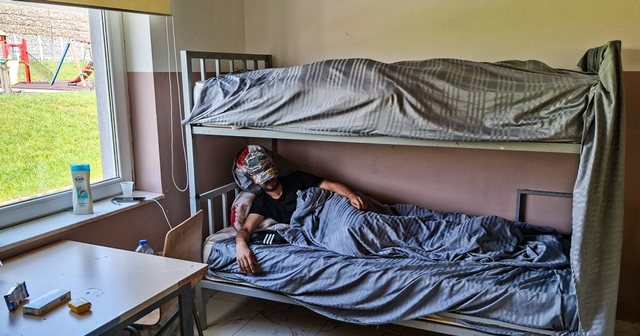
A 27-year-old Palestinian migrant has arrived illegally in Kosovo, facing dangerous routes and high costs. Kosovo police say they are strengthening border controls with drones and joint operations with neighboring countries to stop migrant smuggling. But how effective are these measures?
When war and poverty force people to leave their homes behind, the journey to a better life becomes an uncertain and dangerous adventure.
Husam Nmvawi, from the Gaza Strip, after long walks through the mountains and payments of hundreds of euros, ended up in Kosovo last month.
As he lies half-reclined in his bed at the Magura Asylum Center in Lipjan, he seems to have no clear plan for the future.
"I was initially in Turkey. From there I paid 800 euros to go to Greece. From Greece, to cross into Albania, I paid 300 euros," says the 27-year-old.
His journey did not end there. He would find a way to enter Kosovo - without documents and without security - where he has already applied for asylum status.
"I paid a person 100 euros and he showed me the way. I also used his phone," Husami told Radio Free Europe.
He doesn't want to reveal much about his journey, the groups that may have helped him, or the dangers he encountered along the way.
"I walked a lot, even through water, to cross borders," he says with a frown.
His voice gets even louder when he mentions Gaza - where he says there is no life left and that fleeing was the only solution.
Stories like this take on even more weight today, June 20, on World Refugee Day, when the world pauses to reflect on the pain and resilience of millions of displaced people.
But Husami does not clearly explain why he is in Kosovo.
"I'm staying here for the moment," he says, and does not say whether Kosovo is his final destination or just a stopover on his way to another country.
He briefly mentions that some of his relatives are scattered in various European countries, but does not say whether he has attempted to join them.
Similarly, Kosovo authorities do not have clear information about the long-term intentions of migrants like Husami, as they try to strengthen border control - with the use of drones and joint operations with neighboring states - to stop smuggling and illegal crossings.
This year alone, it has detained 15 people suspected of migrant smuggling and 13 victims - whose cases have been forwarded to the courts - while, last year, it says it handled the cases of 1,025 migrants.
“Grupet e tilla i kemi kapur përmes dronëve të natës, kur kemi zhvilluar operacione”, thotë për Radion Evropa e Lirë Nexhmi Krasniqi, drejtor i Departamentit për Kufijtë në veriperëndim të Gjakovës.
Ai thekson se pika më kritike në këtë aspekt, është zona e Vërmicës, pranë Prizrenit, por shton se, muajve të fundit, lëvizjet e migrantëve janë reduktuar ndjeshëm, falë bashkëpunimit të ngushtë edhe me Policinë e Shqipërisë.
“Veç patrullimeve të përbashkëta mujore që i kemi, ne bëjmë edhe operacione bashkë, kur kemi raste të tilla”, thotë Krasniqi.
Sipas tij, këto rrjete kontrabande janë të përziera dhe udhëhiqen kryesisht nga marokenë e sirianë, me pjesëmarrje edhe të afganëve.
Ai thotë se ata përdorin teknologji moderne, si interneti dhe telefonat celularë, për të komunikuar dhe koordinuar lëvizjet, duke i sjellë migrantët nga Greqia, përmes Shqipërisë, në Kosovë, e më pas në Serbi dhe më tej në Evropë.
Disa prej këtyre individëve mund të kenë lidhje edhe me persona nga Kosova, thotë Krasniqi, ndonëse numri i tyre nuk është i madh.
“Njerëzit që i kanë ndihmuar, kanë qenë pak nga Prizreni, nga Gjilani, Mitrovica... Këta janë të lidhur me ata që kanë kompanitë e veta të taksisë dhe me njerëz që kanë edhe furgonë dhe bëjnë transportin e tyre”, shpjegon Krasniqi.
Sipas të dhënave që siguroi Radio Evropa e Lirë nga Policia e Kosovës, migrantët e ndaluar në Kosovë janë kryesisht nga Maroku, Siria, territoret palestineze, Egjipti dhe vende të tjera.
Ata hyjnë në Kosovë nga të gjitha vendet me të cilat kufizohet, e sidomos nga kufiri me Maqedoninë e Veriut dhe me Shqipërinë.
Por, lufta kundër kontrabanduesve nuk mbyllet me aksionet e policisë.
Në këtë proces janë të angazhuara edhe institucionet e drejtësisë, që synojnë goditjen e rrjeteve kriminale.
Prokuroria Themelore në Prizren - një prej komunave më kritike për kontrabandimin e migrantëve - bën të ditur për Radion Evropa e Lirë se gjatë viteve të fundit ka trajtuar një numër të konsiderueshëm rastesh, me mbi 30 lëndë të hapura dhe dhjetëra persona të përfshirë, ndërsa në vitin 2025, deri më tani, nuk është pranuar asnjë rast i ri.
“Në vitin 2022, kjo prokurori ka pranuar 13 lëndë ndaj 48 personave; ka kryer 19 lëndë ndaj 46 personave dhe ka ngritur aktakuzë në 13 lëndë ndaj 31 personave. Në vitin 2023 janë pranuar 3 lëndë ndaj 13 personave dhe janë kryer 3 lëndë ndaj 32 personave. Në vitin 2024 janë pranuar 3 lëndë ndaj 4 personave, është kryer 1 lëndë ndaj 9 personave dhe është ngritur aktakuzë ndaj 8 personave pas hetimeve”, thuhet në përgjigjen e Prokurorisë Themelore në Prizren, dërguar Radios Evropa e Lirë.
Aktualisht, në Qendrën për Azil në Magurë janë të strehuar 17 migrantë, ndërsa në Qendrën për Migrantë në Vranidoll janë 9.
Fitim Zariqi, director of the Asylum Center in Magura, tells Radio Free Europe that, unlike previous years, this year has seen a decrease in the number of people sheltered in this center.
"From January of this year until now, we have had 44 applicants for international protection. Some of them have left. As is known, Kosovo - in most cases - is used as a transit country for migrants and they do not stay here. Most have left, and now we only have 17 people," says Zariqi.
He shows that since 2019 - when 2,081 people applied for asylum in Kosovo - their number has been decreasing: in 2020 there were 1,409; in 2021 - 578; in 2022 - 550; in 2023 - 181; in 2024 - 190 and so far this year 44.
According to the rules in Kosovo, a migrant can only stay in the country for 15 days without reporting to law enforcement authorities.
After 15 days, he must apply for asylum seeker status - otherwise he must leave the territory of Kosovo.
Kosovo does not have extradition agreements with many countries and migrants cannot be deported, but most, authorities say, flee on their own.
According to them, migrants who do not intend to stay in Kosovo usually stop for 3 to 7 days.
Meanwhile, to obtain asylum status, they need several months.
Kosovo, although not part of the European Union and facing socio-economic challenges, has accepted and sheltered hundreds of asylum seekers in recent years, especially during humanitarian crises such as those in Afghanistan or Ukraine./REL
Latest news

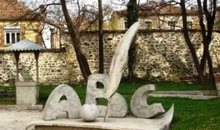
Albanian language included in official communications of New York public schools
2025-06-20 15:08:35
Accident in Italy, 46-year-old Albanian dies (NAME)
2025-06-20 14:50:50
Kosovo in electricity crisis, KESCO appeals to citizens: Save electricity!
2025-06-20 14:29:55
Meta: Disinformation against me, a product of government propaganda!
2025-06-20 14:08:44
The American obsessed with Albania, a country he would write an anthem for
2025-06-20 13:39:41
Berisha: SPAK is throwing candy to protect Gys Agas and Rama!
2025-06-20 13:30:02
"Elections an electoral crime"/ Berisha warns of protests at home and abroad
2025-06-20 13:09:59


Reported missing a day ago, elderly man found dead in Peqin
2025-06-20 12:19:21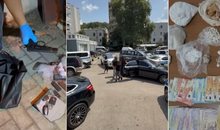
Drug gangs in Tirana cracked down, 24 arrested, 8 wanted (NAMES)
2025-06-20 11:57:38


You win the elections like Edi Rama - but justice won't allow you in Switzerland
2025-06-20 11:10:28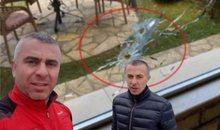
Bullets fired at Arjan Ndoji's former driver's bar, 15 shells at the scene
2025-06-20 10:48:02
Vokshi reports Vilma Nushi to SPAK, files lawsuit for "Check Up"
2025-06-20 10:31:54
Requests release from prison, hearing for former president Meta ends today
2025-06-20 10:15:50

Bullets fired at a bar in Fushë Krujë, police surround the area
2025-06-20 09:34:34



Foreign exchange, how much foreign currencies are bought and sold today
2025-06-20 08:40:20

Clear skies and cloudy skies, today's weather forecast
2025-06-20 08:00:26
Morning Post/ In 2 lines: What mattered yesterday in Albania
2025-06-20 07:50:05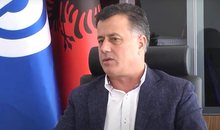
Noka reveals Rama's condition for Veliaj to resign
2025-06-19 22:53:43
Vote recount in Tirana, Kaso: We did not have the 14th mandate as our objective
2025-06-19 22:44:53




Noka: Policemen were running from morning to night for SP votes
2025-06-19 21:31:03
The three zodiac signs that will be disappointed in love this month
2025-06-19 21:18:48
Accused of murder due to blood feud, 48-year-old arrested in England
2025-06-19 21:06:57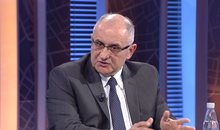
Vasili releases video: Tirana-Kashar segment full of gravel, no workers around!
2025-06-19 21:00:48

Tirana without a coach, four names considered for the white-and-blue bench
2025-06-19 20:21:12
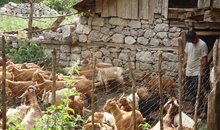
Rinderpest/ A new outbreak appears in Shkodra, 200 sheep affected
2025-06-19 20:01:50

Scientists raise the alarm: Earth risks exceeding the 1.5°C warming limit!
2025-06-19 19:37:44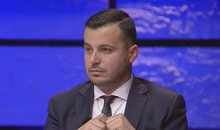

"Fiscal Peace" without consultation with the EU, Brussels concerned
2025-06-19 19:05:23
Trump signs executive order extending TikTok ban in US for another three months
2025-06-19 19:03:35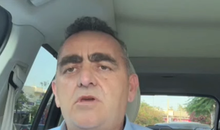
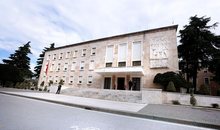
A special Task Force on immigration is established in cooperation with Italy
2025-06-19 18:23:58
Drug trafficking gang busted in Italy, 25 people arrested, including Albanians
2025-06-19 18:18:33
AMF denounces a suspicious cryptocurrency investment platform
2025-06-19 18:06:07
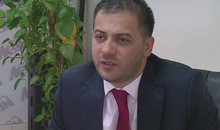

Technology as a tool of war between Israel and Iran
2025-06-19 17:27:54




EU divided over Israel's right to bomb Iran
2025-06-19 16:10:42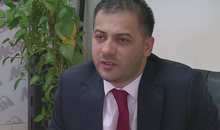

Analysis/ How is Russia spreading propaganda in the Albanian language?
2025-06-19 15:49:18
Session in the Criminal Court, MP Qani Xhafa is fined
2025-06-19 15:33:30
Members of criminal organizations! 3 Albanians extradited from Dubai today
2025-06-19 15:20:04

Lufta/ Zelenskyy bën thirrje për rritjen e presionit ndaj Rusisë
2025-06-19 14:56:02

Netanyahu warns Iran after attacks on Israeli hospital
2025-06-19 14:34:53
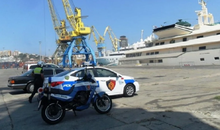
Attempted to enter Albania with false documents, 25-year-old arrested
2025-06-19 14:18:20
Psychology explains what happens in the brain of a person contemplating suicide
2025-06-19 14:01:25

These are the coldest zodiac signs
2025-06-19 13:45:18

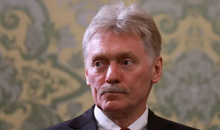

Albanian man dies in hospital after accident in Italy
2025-06-19 13:02:45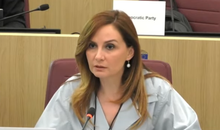


Berisha to gather political leaders tomorrow
2025-06-19 12:32:23
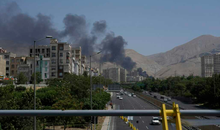
Iran confirms meeting with representatives of Britain, Germany and France
2025-06-19 12:11:33


The constitution of the Kosovo Assembly fails for the 34th time
2025-06-19 11:30:28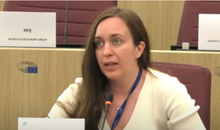


Albania's nuclear bomb!
2025-06-19 10:52:02
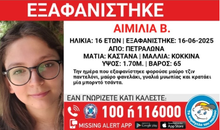
Prej 4 ditësh e zhdukur, humb gjurmët adoleshentja shqiptare në Greqi
2025-06-19 10:33:11
Choosing a child's name, expert reveals three key factors
2025-06-19 10:29:17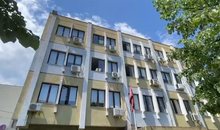
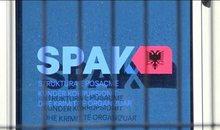

Another request for release from house arrest
2025-06-19 09:49:14
Who is the 18-year-old who stole the crown of "Miss Albania 2025"?
2025-06-19 09:41:37

Arrestohet punonjësi i shërbimeve funerale, vidhte në varrezat e Korçës
2025-06-19 09:13:03
Foreign exchange, June 19, 2025
2025-06-19 09:00:33
Montenegrin arrested in Spain for involvement in a structured criminal group
2025-06-19 08:55:04
BBC: Trump has approved the plan to attack Iran
2025-06-19 08:45:01
Draft reports from Brussels expose 'government facade' towards integration
2025-06-19 08:31:21
